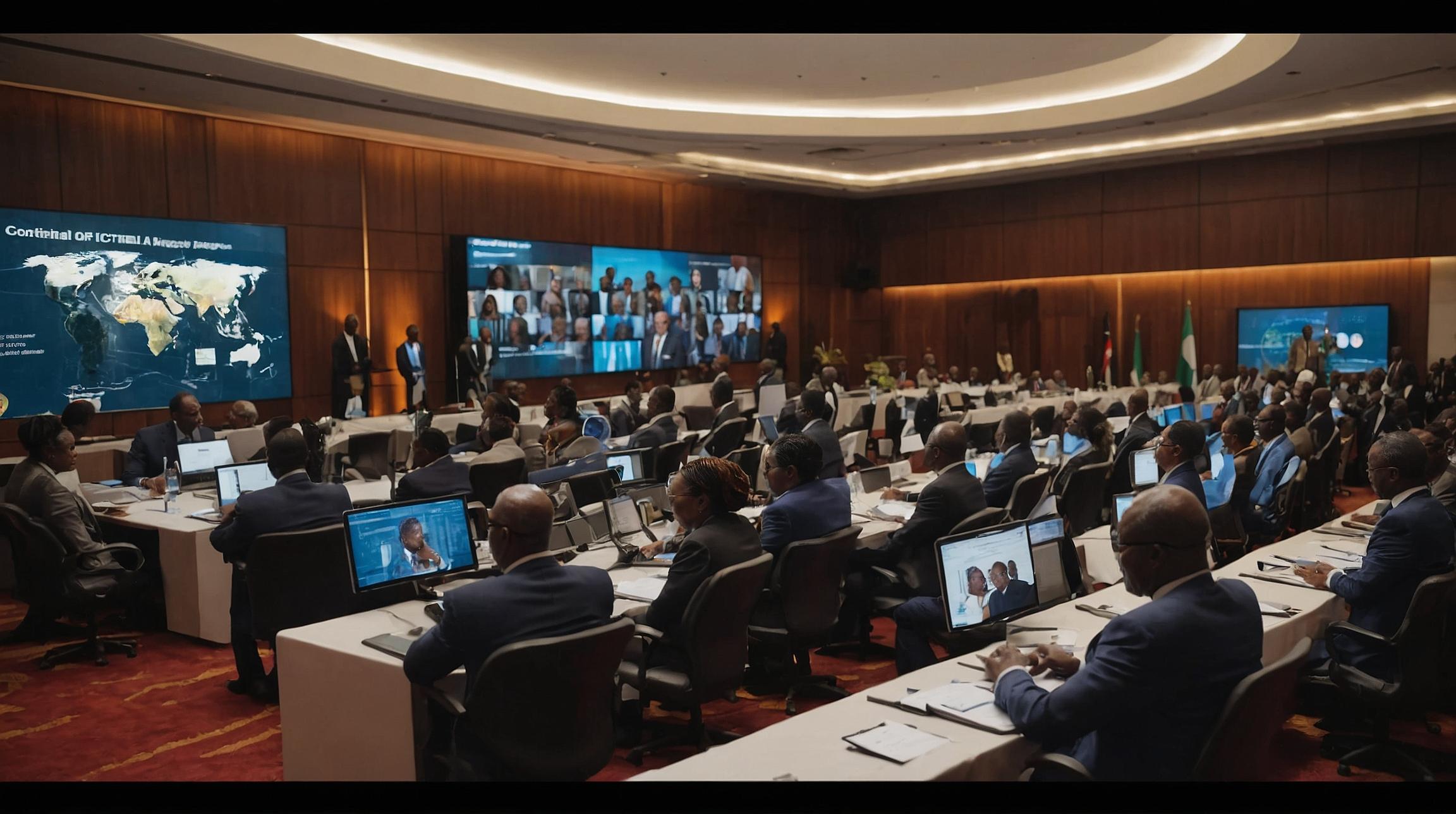African Ministers Adopt Landmark AI Strategy to Drive Digitalization
Over 130 ministers and experts came together for a virtual two-day session to chart a new path for digitalization across Africa. The remarkable consensus was reached by the ICT and Communications ministers from various African nations to create a continental framework for embracing artificial intelligence (AI). This framework, known as the Continental AI Strategy, aims to tackle diverse developmental challenges using the emerging technology.
Pioneering a Safe and Inclusive AI Ecosystem
The ministers revealed their desire to implement safe AI systems and solutions for the continent's 1.4 billion people. To achieve this, they are pushing for local AI solutions, minimizing reliance on Western AI models. This approach will allow for solutions that cater specifically to Africa's unique challenges.
The strategy also emphasizes inclusivity, urging countries to engage with their general populations before rolling out AI regulations. This process ensures higher acceptance and adoption of AI innovations while focusing on practical, real-world solutions.
“As we aim to create an inclusive AI ecosystem and a competitive African AI market that is adapted to our realities and meets our ambitions, we believe examining and approving this strategy will provide a common vision and path to accelerate responsible AI innovation,” said AU Commissioner for Infrastructure Dr. Amani Abou-Zeid.
Transformative Applications of AI in Africa
The strategy envisions a variety of AI use cases for the continent, with a key focus on education, skills acquisition, agriculture, manufacturing, and finance. These applications aim to enhance productivity and bridge the gap between Africa and more advanced regions such as North America, Europe, and Asia.
“For us Africans, Artificial Intelligence presents tremendous opportunities,” added Abou-Zeid. “It is a driving force for positive transformational change as well as economic growth and social progress.”
Nigeria Leading the Way
Before the release of the Continental AI Strategy, Nigeria had already taken the initiative by seeking top researchers to contribute to its own AI development framework. Nigeria's Minister of Communications and Digital Economy Bosun Tijani confirmed that the aim was to include researchers of Nigerian descent.
Nigeria has seen early success with AI, forming a tentative partnership with the U.S. focusing on the digital economy. Despite their local strides, Nigeria's regulators are keen on ensuring that AI regulations align uniformly on an international scale.
Ensuring Compliance and Data Integrity
To ensure AI operates within legal boundaries and can handle growing challenges, it needs to integrate an enterprise blockchain system. This ensures the quality and ownership of data, keeping it secure while guaranteeing data immutability.
This strategic move by African ministers underscores the continent's commitment to harnessing AI for economic and social development, promising a brighter, more digitally advanced future for Africa.













